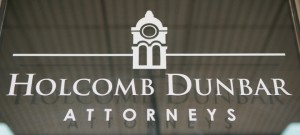Parent-Child Privilege – Can a Son be forced to testify against Dad before a Grand Jury?

Yesterday, the Fourth U.S. Court of Appeals published an opinion rejecting the ‘parent-child’ privilege — this time.
The case arises following a Maryland sheriff’s department response to a domestic violence call at the father’s house. While there the deputies found numerous firearms and in the basement, marijuana plants in five-gallon buckets and other drug paraphernalia.
The son, “Doe Jr.” lived with his father at the time. Doe Jr. was later called to testify before the grand jury. Beforehand, however, Doe Jr. moved to quash the request arguing the “parent-child privilege” allowed him to avoid appearing. The crux of Doe Jr.’s argument:
In a case like this, where the Government seeks to solidify a criminal case against the father by compelling the child’s testimony, the necessary conclusion on the child’s part will be that he [Doe Jr.], is responsible for his father’s prosecution. The damage to the father-son relationship is, under these circumstances, as certain as it is incalculable.
Doe Jr. further provided doctor’s notes regarding the “anxiety” he experienced in the face of potentially testifying against his father. The district court, found that the privilege valid and allowed Doe, Jr. to avoid testifying.
The Fourth Circuit reversed the district court. It found a parent-child privilege may exist, but not here. Judge Thacker wrote:
Moreover, courts have acknowledged time and again the fundamental principle that the public has the right to ‘every man’s evidence,’ and in this case, there is no good reason to thwart that right. Doe Jr. was the only individual living in the Doe household at the time of the 911 call who was available to testify, save the two minor Doe children. Thus, the ‘sought after testimony is of demonstrated relevancy to the grand jury’s investigation.’
In the end, it appears the court was not convinced that Doe Jr. and his relationship with his father was in jeopardy. The court noted that Doe, Jr. was a college student and that by Doe, Jr.’s own testimony his father had not threatened to cut off support. Further, the opinion notes that the testimony would be limited to ownership of the firearms which would not “be of the a nature that would damage the father-son relationship, or that creating the privilege will promote the privacy interest a parent-child privilege is meant to protect.”